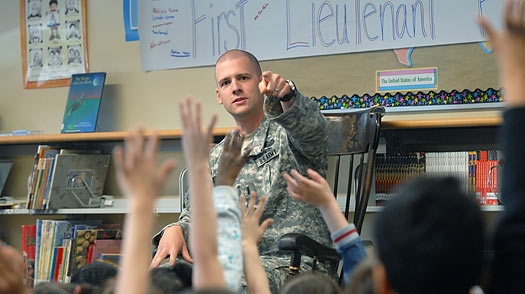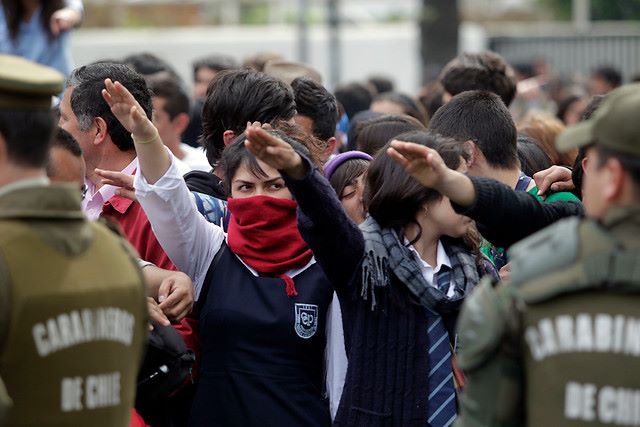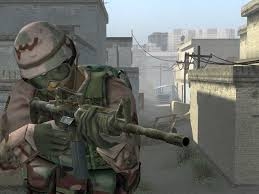What is the militarisation of youth?

Warfare has changed.
For many years, war has been waged through conscripted armies, often sending 'boots on the ground': soldiers to occupy or overtake land, often in adjacent of closeby places.
Conscription is alive and well in many nations, but the trend internationally is towards 'volunteer' armed forces: leaner, more 'professionalised' militaries, relying increasingly on remote control technology, such as drones.
Both in the states that enforce recruitment, and in places where they conscript do not young peoples' bodies, governments and corporations have reason to ensure that we learn war.
In countries where conscription is suspended, they now face the problem of recruitment - making the army an attractive prospect for young people. They have to persuade citizens to passively support the wars they undertake: voting for parties that instigate them and paying for the armed forces that wage them.
We are either conscripted physically, or we are conscripted through our minds and our money. The many ways in which this happens is called the militarisation of youth.
Photo: Troops to Teachers
Quotes from WRI's Countering the Militarisation of Youth conference: Public discourse and Education
One of the arguments that they bring up is that you need to serve the country to protect your own people against possible threats – threats which are not even identified. It's the hero element, in which you need to be a hero to protect your sisters, your brothers and everything. And another argument is that of discipline – to say they want to discipline young people because they feel they're involved in so many socially-negative elements within the community of South Africa. - Kaizer Tshehla, South Africa
Violence, military service, and the education system in Chile

In order to relate militarisation and youth in Chile, we must look to the past and recognise the hundreds of years of militarism in the history of this region.
No place for “Noobs: Computer games and the militarization of youth culture

Computer games and in particular military themed games play a significant part in the lives of young people, to the extent that their popularity and influence now rivals that of “Hollywood”.
Video: 'Oblava'. Illegal and Forced Recruitment in Tajikistan
This is a repost, with thanks to Global Voices






